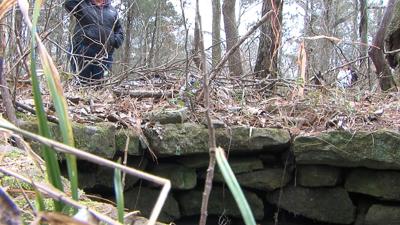
POPE COUNTY, Ill. (WSIL) -- Deep inside the Shawnee National Forest lies a secret that's still being uncovered.
Miller Grove was a predominantly Black settlement founded in 1844 by freed slaves from Tennessee. The settlement was named after a family who freed their slaves, according to archaeologist Mary McCorvie.
"[Miller Grove] was a community of loosely-knit farmsteads surrounding a church and school," McCorvie said.
In 2017, McCorvie teamed up with researchers from SIU-Carbondale to excavate the site that existed before the Civil War.
"They had a Black teacher here in this community in 1860. That is pretty special," McCorvie said. "We know she was here because she's entered into the Census."
The teacher's name was Julia Singleton and McCorvie says the bulk of her time was spent teaching children within the settlement.
"I'm sure she spent time with the adults because they had not been allowed to read and write," McCorvie said.
Now retired, McCorvie still insists on volunteering for the forest and collaborating on future excavation projects.
"It's just so special being out here," McCorvie said.
There are a few artifacts from that time period that remain on the site. McCorvie pointed out an old piece of pottery she says was abandoned along with the site in the 1930s.
There's also an old well that's about 20-feet deep according to McCorvie. She says the well did more than just supply water.
"It was also used as a refrigerator in the summer time for [storing] milk," McCorvie said.
Blue and black tarps cover much of the excavation site. McCorvie says those tarps are preserving their work so archaeologists can come back and continue researching.
McCorvie added that it's important to leave artifacts undisturbed so other explorers can have a chance to discover those pieces. They're reminders, she says, of a community lost to time.
"Archaeological excavations is the only way to learn about the people that actually lived here," McCorvie said. "They were not remembered in the history books the way the greater white culture is remembered in history books."
"They're silenced."


